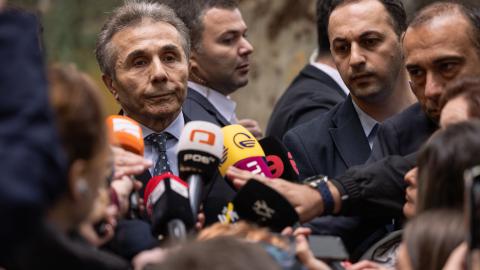The British Overseas Territories (BOTs) have long been seen as tax havens. But in recent years, their related role as global money laundering hubs has come under scrutiny. Like the Conservative government before it, the ruling Labour government in the United Kingdom is under pressure to strengthen corporate transparency and drive out dirty money. While they work to do so, ministers should also take advantage of the fact that so many of the West’s enemies depend on the financial secrecy Britain’s offshore empire offers.
BOTs are mostly small island nations in remote locations with few natural resources (besides fish). As globalization expanded development opportunities, tourism and professional services became the two obvious paths for these territories, especially given that the latter only needs an internet connection.
In addition to low (or no) taxes, BOTs offer discretion in the form of few (or no) know-your-customer regulations. But policies designed to attract the wealthy also attracted criminals, who for obvious reasons were similarly concerned with keeping their financial arrangements hidden from authorities in their own countries. The UK therefore bears some responsibility for facilitating the rise of China, Russia, Iran, and other kleptocratic dictatorships that, having consolidated their rule at home, now turn their sights on upending the global order and supplanting the West.
But it also means that the UK possesses potential leverage over these regimes—should the government be brave enough to use it.
One urgent example of this is Bidzina Ivanishvili, the would-be dictator of Georgia. His ruling political party, Georgian Dream, has made no secret of its plan to subvert the population’s aspirations for European Union membership and instead drag Georgia back under Russia’s control.
Ivanishvili has also opened his country, and Europe, to the pernicious influence of the Chinese Communist Party by inviting US-sanctioned Chinese state-owned companies to build a strategically significant deep-water port.
In December, the UK joined the United States in sanctioning five senior Georgian officials for their roles in violently suppressing pro-democracy protests. In January, the US went one step further and imposed long-overdue sanctions on Bidzina Ivanishvili himself. The UK has yet to follow, while the EU has been unable to act because of the now-predictable vetoes by Russia-friendly Hungarian and Slovak leaders.
Transparency International Georgia has identified 95 companies controlled by Ivanishvili that are registered in the British Virgin Islands and the Cayman Islands. As BOTs, these islands are required to enforce the sanctions by banning any transactions with the companies and freezing any assets owned by them.
Kleptocrats like Ivanishvili are rarely foolish enough to keep all their eggs in one basket. It is unlikely that his overseas financial assets are in BVI or Cayman bank accounts but located in other jurisdictions with similarly lax oversight but better financial sectors.
Fortunately, the threat of sanctions is often sufficient to convince banks in other jurisdictions to stop turning a blind eye and boot the suspicious customer. Given the US dollar’s global role, Washington has by far the most clout in this respect. But the UK, as home to the world’s second biggest financial center, also holds significant influence.
James MacCleary, a Liberal Democrat member of Parliament, has introduced an early day motion (a nonbinding resolution somewhat akin to a sense of Congress) calling on the Labour government to impose sanctions on Ivanishvili. So far just 15 MPs, mostly from his own party, have joined him. Not all MPs regularly sign EDMs, but this is nevertheless a paltry show of support.
MacCleary is not the only parliamentarian to have noticed the UK’s strange delay in acting against Ivanishvili. Representative Joe Wilson (R-SC), a member of the House Foreign Affairs Committee and chair of the Helsinki Committee in Congress, has also called on the UK to “immediately sanction CCP crony Bidzina Ivanishvili, his immediate family, and his network of enablers.”
To his great credit, Foreign Secretary David Lammy has committed to ending London’s role as a one-stop shop for foreign kleptocrats to launder their stolen funds and whitewash their reputations. But extending this crusade to the BOTs will take much political wrangling with their local governments, who are resentful of what they see as London’s interference in their internal affairs (or, more likely, simply unwilling to tamper with their main source of revenue).
While Lammy is busy fixing this broken net, he should be careful not to discard the fish that it has already caught. Kleptocrats like Ivanishvili should never have been able to exploit the BOTs to launder their stolen wealth. But if they continue to do so, they should henceforth live in fear that the UK will use its sanctions power to hold them accountable.




















